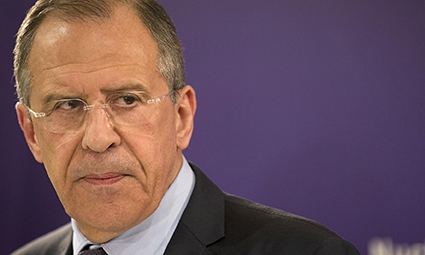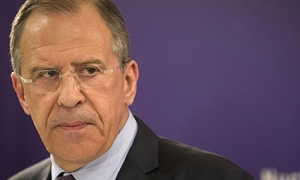Lavrov & the Visa Waiver
OP-ED
The Foreign Minister of Russia, Sergei Lavrov, made two contradictory announcements about Georgia. On February 10, he told the newspaper Izvestia that a visa-free regime for Georgian citizens was not to be ruled out, then on February 18, at the 53rd Munich Security Conference, he told journalists quite plainly that Russia did not plan to renew visa-free travel for Georgian citizens in the near future.
Lavrov never stood out for his diplomatic announcements regarding Georgia, always voicing directly and openly the position of the Kremlin. Therefore, his announcement about a visa waiver was naturally understood in Tbilisi as the answer of Russia to the recent Euro visa liberalization. Even more, Official Tbilisi regarded Euro liberalization as a “favor” from the Kremlin.
“The dialogue we’ve had with Russia since 2013 helped support the implementation of the European project,” bragged special representative of the Prime Minister of Georgia for Russia, Zurab Abashidze.
To put it simply, Official Tbilisi was satisfied that the Kremlin had not incited European MEP’s against Georgia, thus blocking Euro liberalization. Nevertheless, the excitement of the officials in Tbilisi didn’t last long, because in Munich, Lavrov referred to Georgia as a territory that serves as a route for terrorists, extremists and drug dealers, “Terrorists, extremists and drug dealers often use Georgia and the South Caucasus as a path, and in this light, it is difficult to talk about visa-free travel,” Lavrov told journalists.
Why did the Kremlin disappoint the Georgian Dream government? What happened this week to make the Kremlin so dramatically change its position?
Former Georgian Ambassador to Switzerland, opposition MP Zurab Chiaberashvili, believes that Lavrov’s announcement is a signal for Georgia that it has to give up something more in order to receive the visa-waiver from them.
“Lavrov directly said that when fully fledged relations are settled between Georgian and Russian law enforcement agencies, and risks can be minimized, perhaps then it will be possible to talk about softening the visa regimen further. What further implications do we need to understand what Russia wants in exchange, not even for full abolition of the visa regime, but for easing travel. This is the cornerstone of the concession policies that Georgian Dream (GD) has had since 2013,” Chiaberashvili said.
Expert Mamuka Areshidze regards the transformation of the Kremlin’s position not as a reaction to the concession politics of GD, but on the contrary, to the purposeful policies that Official Tbilisi has with NATO.
“The fact that a training center of NATO standard is to open here and that Georgia is still determined to work with NATO, and that these relations are becoming tighter- this is what worries [the Kremlin],” Areshidze told newspaper Akhali Taoba. “You know why Lavrov mentioned the South Caucasus? Because the head of the USA visited Baku and although he met with Gerasimov, Chief of the General Staff of the Armed Forces of Russia, it was still considered that both the USA and NATO regard Azerbaijan as their potential ally”.
That the ultimate goal of Russia to subdue Georgia has not been realized is proven not only by the opening of the NATO training center: no Georgian government can recognize the independence of the occupied territories, something which the Kremlin craves. This is why it has tried repeatedly to disintegrate Georgia into feudal principalities - poking at different times Adjara, Samegrelo and Javakheti. Because of Russia’s failure in this direction, the Kremlin is developing new bait, and there is a feeling that if such politics fail, in the end they will put the stakes on better-tried and tested ways, meaning military intervention, as happened in August 2008.
Zaza Jgarkava












